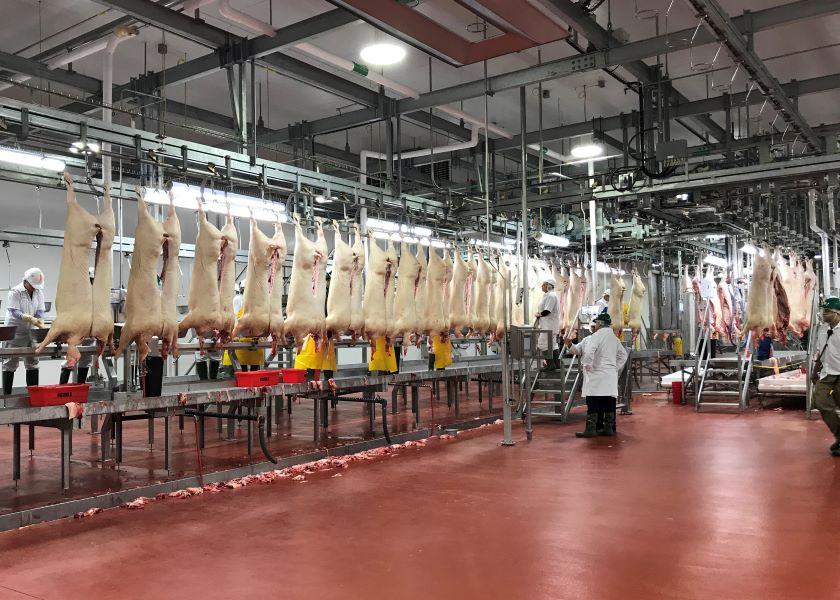Raise Average Wages in Meatpacking Industry to Attract New Workers

Constant labor pressures and high rates of immigrant workers spurred researchers to seek an answer to an important question in the meatpacking industry. How do changes in job market conditions and job-specific attributes impact low-skilled domestic workers' willingness to accept meatpacking jobs?
The study, led by Jeff Luckstead of Washington State University, Rodolfo M. Nayga Jr. of Texas A&M University and Heather Snell of Arvest Bank, used a discrete choice experiment to examine the impact of COVID-19 exposure risk, unemployment risk, enhanced and extended unemployment benefits, and job attributes on low-skilled workers' willingness to accept (WTA) meatpacking jobs.
The national average meatpacking wage, approximately $15 an hour, is too low for these workers to consider – especially with COVID-19 exposure risk and unemployment risk, the researchers said. The study pointed out the average WTA wage was $22.77, and noted that health insurance, retirement benefits and a signing bonus enhanced the WTA for meatpacking work. Research showed the additional unemployment benefits of the CARES Act neither deterred nor encouraged respondents WTA.
A Look at the Study
The study surveyed more than 1,000 respondents between Oct. 26 and Nov. 24, 2020. The survey was restricted to respondents most likely to consider meatpacking jobs; researchers excluded anyone earning more than $75,000 a year; anyone above the retirement age of 65; anyone with a college degree; and anyone unable to physically lift 10 pounds or more.
The results suggest that, in general, respondents were unwilling to accept meatpacking jobs and required a wage premium of $2.857/h to consider a meatpacking job.
The results for the signing bonus suggest a simple policy prescription for easing labor shortages in the meatpacking industry during a pandemic, the study explained.
With a baseline mean WTA of −$2.857/h, a mean WTA $0.0029/h for every $1 increase in the signing bonus, and an average status quo wage of $22.77/h, a $3,600 signing bonus would result in a wage of $15.2/h, which is very close to the national average hourly wage for slaughterers and meat packers of $15/h.
“It is worth noting that retention of new workers that are naive to the realities of employment in the meatpacking industry is a potential issue that is outside the scope of the current study,” researchers said. “Furthermore, counter to expectations for ‘normal’ economic conditions during the COVID-19 pandemic, respondents who collected unemployment benefits during the pandemic would have preferred a meatpacking job relative to their status quo.”
Benefits Offer Processors Flexibility
The study emphasized how benefits could give processors more flexibility on wages. Health insurance, retirement benefits, and a signing bonus are desirable job attributes, the study showed, as they enhanced workers' willingness to accept meatpacking jobs.
For example, if health insurance or retirement benefits were part of the job offer, respondents noted they would consider a wage of $16.21 to $17.34 an hour. In addition, aggressive signing bonuses could also help workers consider a wage below the $22.77 WTA average.
“From a policy perspective, the U.S. government could have eased the COVID-19-induced labor shortage in the meatpacking industry by implementing targeted advertising informing workers of the dire situation of the industry. The results indicate that higher wages along with additional nonwage benefits would have expanded the labor supply,” the study said.
This research first appeared in the Journal of the Agricultural and Applied Economics Association.
Read More:
How Much Do Consumers Love Meat? Rising Prices Will Soon Tell
First Human Case of Avian Flu in the U.S. Confirmed in Colorado







